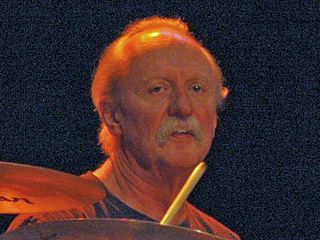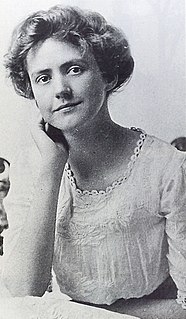Ein Zitat von EA Bucchianeri
Mit der Veröffentlichung von Goethes epischem Drama hatte die Faust-Legende einen kaum erreichbaren Höhepunkt erreicht. Obwohl viele dieses Opus magnum nicht in seiner Gesamtheit würdigten oder gar nicht verstanden, war sein Drama von diesem Zeitpunkt an der Maßstab, an dem alle anderen Faust-Adaptionen gemessen wurden. Goethe hatte die früheren Legenden in den Schatten gestellt und wurde in den Augen der neuen romantischen Generation zur unbestrittenen Autorität in Sachen Faust. Von seinem Weg abzuweichen wäre nichts weniger als Gotteslästerung.
Verwandte Zitate
Das Leben ist mehr als nur Gedanke: Was ein Mensch fühlt und was seine Sinne in ihm wecken, ist für die Fülle seines Lebens unentbehrlicher als die anschließende Reflexion über ihre Bedeutung. Sowohl Stirner als auch Nietzsche haben Fausts Eröffnungsrede ausgearbeitet, in der er seine verschwendeten akademischen Jahre beklagt: Diese Rede ist Goethes eigene Anklage gegen Kant und Hegel. Philosophie geht immer unter der Gefahr vor, das Denken zum Fetisch zu machen.
Die Sonne war inzwischen hinter dem Ettersberg gesunken. Wir spürten im Wald die Kühle des Abends und fuhren umso schneller nach Wiemar und zu Goethes Haus. Goethe drängte mich, eine Zeit lang bei ihm zu bleiben, und ich tat es. Er war in einer äußerst engagierten Stimmung. Er sprach viel über seine Farbenlehre und seine hartnäckigen Gegner; Er bemerkte, dass er sicher sei, in dieser Wissenschaft etwas geleistet zu haben.
Doch Goethe erzählt uns in seinem größten Gedicht, dass Faust die Freiheit seiner Seele verlor, als er dem vergänglichen Augenblick sagte: „Bleib, du bist so schön.“ Und auch unsere Freiheit ist gefährdet, wenn wir für den vorübergehenden Moment innehalten, wenn wir uns auf unseren Errungenschaften ausruhen, wenn wir uns dem Tempo des Fortschritts widersetzen. Veränderung ist das Gesetz des Lebens. Und wer nur in die Vergangenheit blickt, wird die Zukunft mit Sicherheit verpassen.
Ich wünsche mir, dass die Leute über die Kleinigkeiten hinausschauen und erkennen, dass ich einige andere Bücher geschrieben habe, von denen ich wirklich möchte, dass sie den Leuten Beachtung schenken. Es gibt „The Man Who Folded Himself“ und „The Martian Child“, in dem es um meinen Sohn und die Adoption geht. Da ist „Der Krieg gegen den Chtorr“, mein Hauptwerk, meine großartige epische Geschichte.
Ich wünsche mir, dass die Leute über die Kleinigkeiten hinausschauen und erkennen, dass ich einige andere Bücher geschrieben habe, von denen ich wirklich möchte, dass sie den Leuten Beachtung schenken. Es gibt „The Man Who Folded Himself“ und „The Martian Child“, in dem es um meinen Sohn und die Adoption geht. Da ist „Der Krieg gegen den Chtorr“, mein Hauptwerk, meine großartige epische Geschichte.
Hegel verstand die Heisenbergsche Realität des Wissens: Ja, es wäre schön, wenn wir die Wahrheit irgendwie behutsam einfangen und uns selbst näher bringen könnten, ohne sie zu verändern, „wie ein Vogel, der mit einem Leimstock gefangen wird“. Aber die Realität ist, dass jede Wahrheit, die wir erkennen können, durch unsere „encheiresis naturae“, durch den Akt unserer Inbesitznahme der Natur (um den Ausdruck der Alchemisten aus Goethes Faust zu übernehmen), verändert und deformiert wird.
Entstehen! Entstehen! Eine Flutwelle kommt! Weiter! Männer und Frauen, bis hin zum Chandala (Paria) – alle sind in seinen Augen rein. Weiter! Weiter! Es bleibt keine Zeit, sich um Namen, Ruhm, Mukti oder Bhakti zu kümmern! Wir werden uns diese ein anderes Mal ansehen. Lasst uns nun in diesem Leben seinen erhabenen Charakter, sein erhabenes Leben, seine unendliche Seele unendlich verbreiten. Das ist die einzige Arbeit, es gibt nichts anderes zu tun.
Walter Benjamin wusste, dass der Bruch mit der Tradition und der Autoritätsverlust zu seinen Lebzeiten irreparabel waren, und er kam zu dem Schluss, dass er neue Wege im Umgang mit der Vergangenheit finden musste. Darin wurde er zum Meister, als er entdeckte, dass die Übertragbarkeit der Vergangenheit durch die Zitierbarkeit ersetzt worden war und dass anstelle ihrer Autorität eine seltsame Macht entstanden war, die sich Stück für Stück in der Gegenwart niederließ und ihr den „Frieden“ nahm des Geistes“, der gedankenlose Frieden der Selbstgefälligkeit.
Goethe starb 1832. Wie Sie wissen, war Goethe sehr aktiv in der Wissenschaft. Tatsächlich hat er einige sehr gute wissenschaftliche Arbeiten in der Pflanzenmorphologie und Mineralogie geleistet. Aber er war ziemlich verbittert über die Art und Weise, wie viele Wissenschaftler ihm eine Anhörung verweigerten, weil er ein Dichter war und sie deshalb der Meinung waren, er könne es nicht ernst meinen.
Svengal lag stöhnend auf dem Rasen. Seine Oberschenkel waren pure Qual. Sein Gesäß schmerzte. Seine Wadenmuskeln brannten. Nachdem er nun von dem kleinen Pony, auf dem er geritten war, gestürzt war und mit der Schulterspitze heftig auf dem Rasen aufgeschlagen war, schmerzte auch die Schulter. Er konzentrierte sich darauf, einen Teil seines Körpers zu finden, der keine große Schmerzquelle darstellte, und scheiterte kläglich. Er öffnete seine Augen. Das erste, was er sah, war das Gesicht des älteren Ponys, auf dem er geritten war und auf ihn herabblickte. Was hat Sie dazu gebracht, so etwas Seltsames zu tun? Die Kreatur schien zu fragen.































